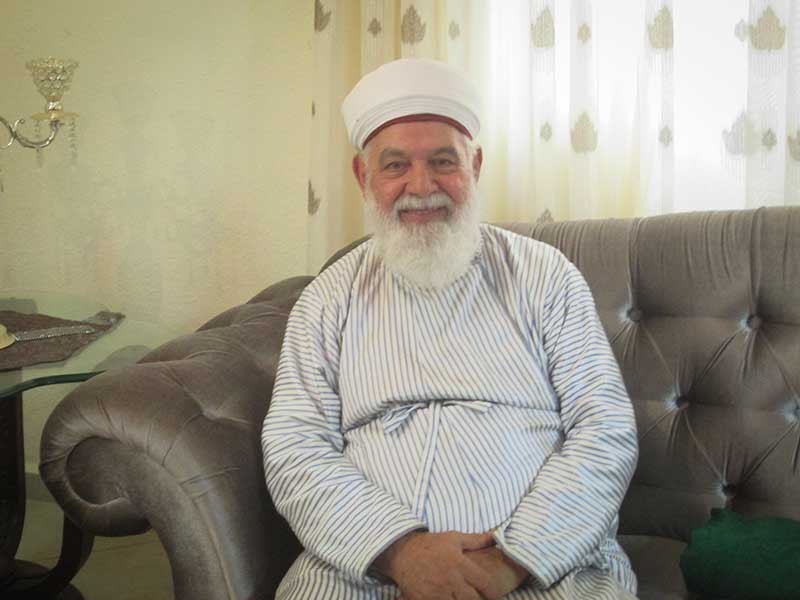Yousef Sadaka HaCohen, a Samaritan priest, looks to the past and future
HaCohen is one of only 802 Samaritans in the world.

During the recent Sukkot holiday, Yousef Sadaka HaCohen, a Samaritan priest in Mount Gerizim, West Bank, greeted guests eager to soak up Samaritan traditions.
Among those guests were several Israeli and Palestinian officials who, on the rare occasions they get together these days, usually meet to coordinate security or air grievances.
“We are not Jewish and we are not Muslim, but in many ways we are the bridge between the two,” HaCohen said. “During our holidays, officials from the Palestinian Authority and Israeli commanders accept our invitation. They eat together, even laugh together.”
Once numbering more than 1 million people, the Samaritans count only 802, which makes them one of the smallest religious groups in the world. Wars, forced conversions, and inherited diseases have taken a catastrophic toll.
Recently, Samaritan priests embraced genetic testing and began allowing men to marry women of Ukrainian ancestry (at the time there were three times more men than women). Although some women come from Israel, most emigrate from Ukraine after spending a few days with their prospective husbands. After a trial period, “any woman who is unhappy here is allowed to go home,” HaCohen said.
Today’s Samaritans live in two groups: about 350 live under Palestinian rule on Mount Gerizim, which they believe is where Abraham prepared to sacrifice his son Isaac. The other group took root near Tel Aviv decades ago, after war prevented Samaritans working in Israel from returning to the West Bank. They meet several times a year.
According to Samaritan tradition, their people descended from the biblical tribes of Ephraim and Menashe and remained in the Northern Kingdom of Israel after the Assyrians exiled the Israelite tribes to Babylon in 722 BC. Samaritans have an alternative version of the Torah and their own sacred texts.
HaCohen said Samaritan ritual practices have barely changed since ancient times. For example, women are segregated during their menstrual cycles.
In accordance with a literal interpretation of the biblical prohibition to refrain from work during the sabbath, Samaritans do not use any form of electricity or fire from sundown Friday until sundown Saturday.
“We don’t use any electric devices, not even a refrigerator,” he said. “We receive our light from God.” —Religion News Service





